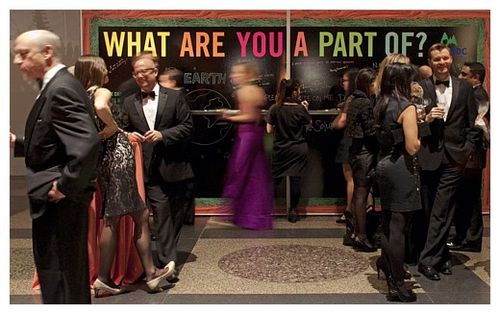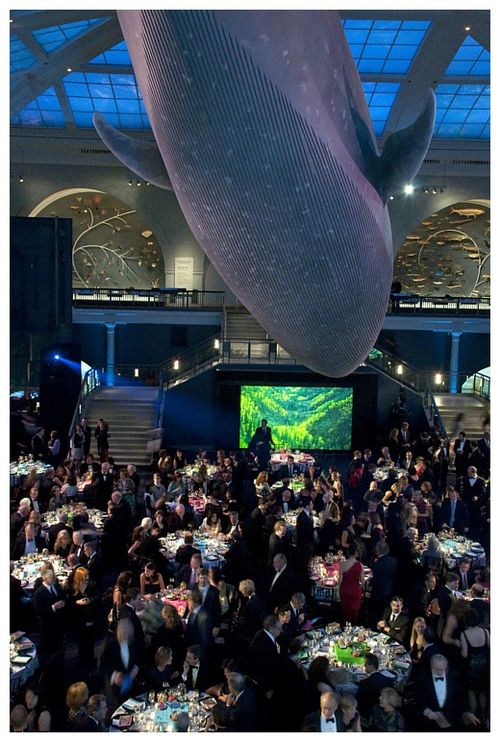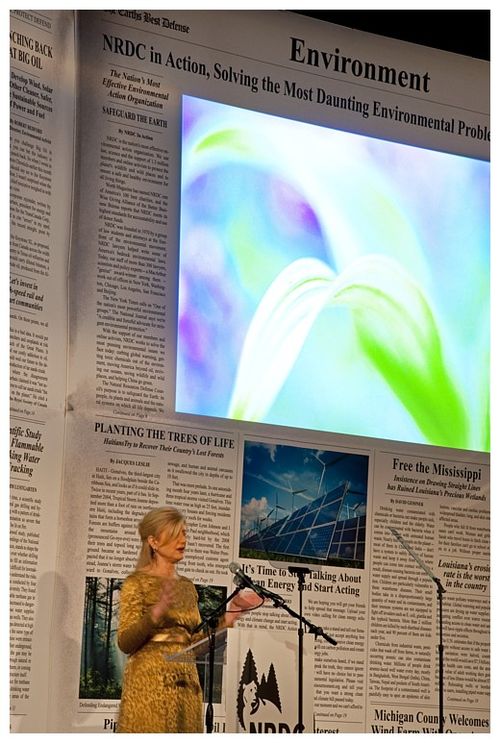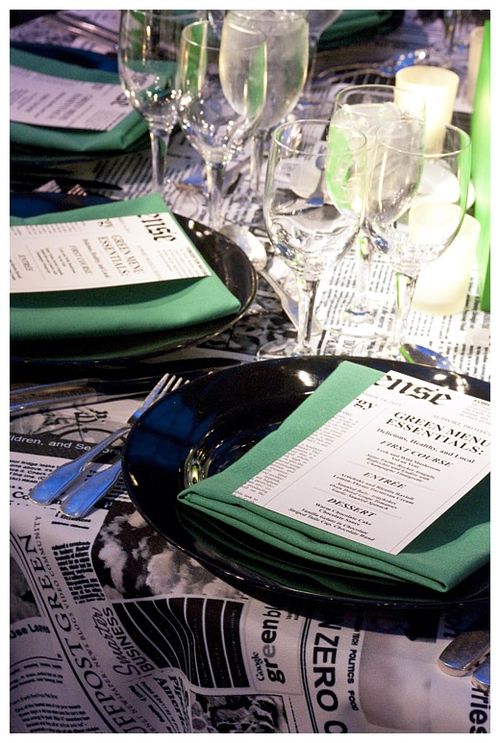COPENHAGEN, Denmark ? As daylight broke on June 4, worshippers found a mosque in southern Denmark defaced with drawings of the Prophet Muhammad and slogans urging Muslims to "go home."
In late October, a dismembered pig was buried on the planned construction site of a planned mosque on the outskirts of Copenhagen.
Both acts were the work of the Danish Defence League, a year-old far-right group that claims it's not opposed to foreigners in general, just Muslims.
"We are not racists. We are not Nazis," insists Bo Vilbrand, the group's 24-year-old spokesman. As if to prove his point he says the Danish Defence League welcomes blacks and Jews.
The group and its larger English forebear represent a new crop of right-wing radicals who don't fit the mold of the boot-stomping, Jew-hating neo-Nazis. This movement claims its fight is against Islam, and uses crusader symbols instead of swastikas. It frames its mission as a cultural struggle, although opponents say it is little more than old-fashioned xenophobia hiding beneath anti-Islamic rhetoric.
European authorities were just starting to consider the far-right, anti-Muslim movement's potential for violence when Norwegian militant Anders Behring Breivik took it to unimaginable extremes on July 22, massacring 77 people in the name of an anti-Islamic revolution.
"Oslo was an eye-opener," says Hajo Funke, an expert on European right-wing extremism at the Free University Berlin.
Norway's PST security service highlighted the rise of the anti-Islamic groups in its annual threat assessment in March, although chief analyst Jon Fitje says the movement in many ways remains uncharted.
"There seems to be many people who share Breivik's general views, even though they of course condemn his actions," Fitje told The Associated Press. "But we don't know much about this. And we don't know how much we should know about it," because PST is not allowed to register people based on their political views.
Anti-Muslim sentiment in Europe is nothing new. Since the 9/11 terror attacks in the U.S. it has boosted anti-immigration political parties from Scandinavia to France. However, it started taking a more radical form in recent years, mostly online, but also with small groups organizing street protests against a perceived Islamization of Europe.
In France, the anti-Muslim Bloc Identitaire has emerged as one of the loudest voices on the extreme right fringes.
A key development came in 2009 with the creation of the English Defence League, which claims to be peaceful but whose anti-Muslim protests have ended in clashes with police and left-wing demonstrators. Two years after counting about 50 members, the group boasts its ranks have swollen to 10,000, though authorities say its fluid nature makes it hard to measure.
What is clear is that hundreds of people, including soccer hooligans, have turned up for the EDL's protests, and European police agency Europol in 2010 said its quick rise had raised the profile of right-wing extremism in Britain.
The EDL has spawned offshoots across northern Europe, with varying success. Most are Facebook groups only. A handful of people showed up for a Norwegian Defence League rally in April, and a Dutch version was disbanded earlier this year.
The Danish Defence League appears to have been more successful. Vilbrand says it has 200-300 active members and more than 1,000 supporters who pay membership fees but don't take part in activities.
Denmark's PET security service declined to comment on the group. Danish experts on right-wing extremism say the Danish Defence League exaggerates its size, but is growing ? unlike many traditional far-right group.
Danish blogger Margrethe Hansen, who spent three months infiltrating far-right groups online, says the Danish Defence League probably counts about 100 active members ? a considerable number considering the group was founded last year ? and has the potential to become the strongest far-right group in Denmark.
Last year, she spied on the Facebook pages of Scandinavian anti-Muslim groups, including the Danish Defence League, by creating a fake profile. Posing as a rabid nationalist, she says she found the anti-Muslim community has more in common with white supremacists than its leaders admit.
"Under the facade, when I was undercover on the Internet, I participated in closed groups where they are talking like racists: `Immigrants are stealing our money, our women,'" she says. "But it's an easier message to sell if you say `we are against extreme Islam.'"
Hansen says she lives at a secret address after receiving death threats from anti-Muslim extremists who see her as a traitor for embracing multiculturalism.
Using her fake profile, she even became Facebook friends with Breivik but says his rhetoric wasn't particularly extreme and that he didn't drop any hints of his plans to set off a bomb in Oslo and gun down youths at a left-wing party's summer camp.
"When I found out it was Breivik, I was totally shocked," she says. "I sometimes think, why didn't I see it coming?"
Hansen says Danish police have questioned her on behalf of Norwegian police about Breivik's online communication and her insights into the anti-Islamic community.
The anti-Islamic movement's ideological roots can be found in the so-called "counterjihadist" community of American and European bloggers who on sites such as "Gates of Vienna" and "Brussels Journal" say Muslim immigrants are colonizing Europe with the tacit approval of left-wing political elites.
In his online manifesto, Breivik cited many of those bloggers, including a fellow Norwegian using the pseudonym "Fjordman" ? who wrote chillingly that if governments don't stop Muslim immigration, Europeans must act to "protect our own security and ensure our national survival."
Breivik, who was recently declared criminally insane, also praised the English Defence League and other anti-Muslim groups, and reveled in the symbolic crusader imagery they use. The "Knights Templar" resistance movement he claims to belong to appears to be a figment of his imagination, investigators say.
Some of the American bloggers cited in Breivik's manifesto won devoted followings during the controversial 2010 attempt to base a mosque near the site of the destroyed World Trade Center in New York. But despite the bloggers' high-profile roles and a recent surge in anti-Islamic hate crimes in the U.S., there is no clear evidence that dangerous U.S.-based extremist groups have pursued strong anti-Muslim agendas, experts in domestic extremism say.
"The main focus of American extremists like neo-Nazis and the Klan is still aimed at African-Americans and Latino immigrants," said Heidi Beirich, director of research for the Southern Poverty Law Center, which tracks hate groups.
In Europe, "counterjihadist" blogs as well as defence leagues and other anti-Islamic groups have rejected Breivik as a deranged psychopath. Investigators believe he plotted and carried out his mayhem alone.
Still, some analysts believe the rhetoric used in the anti-Islamic community is so aggressive it should come as no surprise that, eventually, someone would leap from words to action.
"There is something in the ideology itself which makes violence a logical result," says Oeyvind Stroemmen, a Norwegian Green Party member and writer who warned of violence from anti-Muslim extremists before the July attacks.
British researcher Toby Archer, who has also studied the anti-Muslim movement, said it wasn't surprising that sooner or later "there would be people seeing themselves as the movement's special forces or shock troops."
Others caution against drawing far-reaching conclusions from what happened in Norway. Breivik's violence was unprecedented in the anti-Muslim movement, and it's rare in terms of the far-right in general.
The last European attack on a similar scale blamed on right-wing extremists was the 1980 bombing of a railway station in Bologna, Italy, that killed 85 people. Islamist terrorists are still considered the biggest threat to European security.
Yet many experts say the anti-Muslim groups have a greater potential to grow than traditional far-right extremists, who are struggling to boost their numbers.
That realization has led some political fringe groups, like the British National Party and Belgium's Vlaams Belang, to shift from blanket opposition to immigration to a focus on Islam.
The manifesto of the BNP, whose leader has a conviction for racial hatred and has denied the Holocaust in the past, includes a "counterjihadist" chapter, saying Europe is being invaded by Muslims.
Even hardcore white supremacists are debating whether to stress the anti-Muslim message as a marketing tool.
In Sweden, where neo-Nazis committed a series of murders in the 1990s, the white power movement is split between those who say "Holocaust denial" won't boost their following and hardline racists who stick to their old ways, says Johan Olsson, an analyst at the Swedish Security Service.
Vilbrand, who uses the alias "Bo Rightwing" on the Internet, claims his group focuses on radical Islam, like when it patrolled an immigrant neighborhood in Copenhagen where a handful of fundamentalist Muslims said they wanted to introduce Islamic law.
But its "blitz mission" in June targeted a mosque that hasn't been associated with radical Muslims. It belongs to a small community of Ahmadiyya Muslims, who are considered heretics by some mainstream Muslims and have faced persecution in many countries.
The mosque's imam, Naimatullah Basharat, says that next to the Muhammad drawings were stickers with a Latin inscription saying "If you wish for peace, prepare for war" ? the Danish Defence League's motto.
Basharat says he would like to explain his view of Islam to the group.
"We show our patience, also to those who do this kind of thing," he says. "Our motto is `love for all, hatred for none.'"
___
Associated Press Writers Jan M. Olsen in Copenhagen, Denmark, and Stephen Braun in Washington D.C., contributed to this report.
Source: http://us.rd.yahoo.com/dailynews/rss/religion/*http%3A//news.yahoo.com/s/ap/20111207/ap_on_re_eu/eu_europe_s_new_far_right
day of the dead rocksmith blackbeard widespread panic widespread panic richard stallman richard stallman

 Peter Bunn, Hope College men's basketball tops No. 20 Marietta (Ohio) in DeVette Classic semifinals zo.pe/r6a
Peter Bunn, Hope College men's basketball tops No. 20 Marietta (Ohio) in DeVette Classic semifinals zo.pe/r6a  HollandSentinel
HollandSentinel 




 thinkprogress
thinkprogress  ProPublica
ProPublica 



